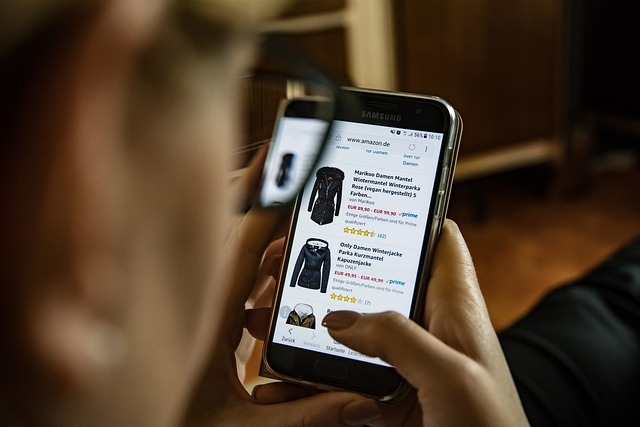Have you ever found yourself asking, “How to deal with social media blackmail?” In today’s digital age, social media blackmail is a growing concern that many users face. Knowing how to handle such situations effectively is crucial for protecting your privacy and well-being.
What is Social Media Blackmail?
Social media blackmail involves threatening to release private or sensitive information unless demands are met, often including money or other favors.
Types of Social Media Blackmail

1. Financial Extortion
One common type of social media blackmail is financial extortion, where the blackmailer demands money in exchange for not releasing sensitive information. For instance, cyber blackmailers may threaten to share private content from your social media accounts unless you pay a ransom. It’s important to gather evidence and report blackmail to authorities immediately to stop blackmail attempts.
2. Revenge Porn
Revenge porn involves the distribution of intimate images or videos without consent. This type of online extortion often occurs after a relationship ends badly. Victims should report blackmail involving sexually explicit content to social media platforms and local law enforcement. Strong privacy settings on your social media profiles can help protect against this form of abuse.
3. Personal Information Threats
Blackmailers may threaten to release private information such as addresses, phone numbers, or personal life details. They might use text messages or social media websites to make these threats.
Document all the evidence, including messages and other evidence, and contact local law enforcement or the internet crime complaint center to investigate the crime.
4. Cyberbullying and Harassment
Some blackmailers use threats of spreading harmful information or rumors to coerce victims into compliance. This can severely impact a person’s mental health. Seeking emotional support from family and friends, and reporting the incident to the social media platform, can provide some relief while authorities handle the investigation.

5. Corporate Espionage
In the corporate world, social media blackmail can involve threats to release confidential company information. Employees or executives may be targeted through their social media accounts. It is vital to report such incidents to the local FBI field office and gather all evidence for a thorough investigation.
6. Identity Theft
Blackmailers may obtain and threaten to misuse someone’s identity, demanding money to keep the information private. Victims should report such cases to the internet crime complaint center and ensure they have strong privacy settings on all social media platforms to prevent further access.
7. Manipulative Relationships
Blackmail can also occur within personal relationships where one person uses private content, like intimate photos, to manipulate or control the other. In these cases, it is essential to seek professional help and support, document all the evidence, and report the blackmail to local law enforcement agency.
8. Political Blackmail
Political figures or activists may face blackmail with threats to release damaging information that could ruin their careers. Social media profiles can be a source of such sensitive information.
Reporting the blackmail to the federal bureau and blocking the blackmailer on social media platforms can help mitigate the threat while authorities investigate the crime.
How to Take Action Against Social Media Blackmail?

1. Document Every Threat
When dealing with social media blackmail, the first step is to document all threats and communications. Save screenshots, emails, and messages from the blackmailer. This evidence is crucial for law enforcement to build a strong case. Many victims forget to gather enough evidence initially, which can hamper investigations and the ability to take legal action against the perpetrator.
2. Report to Law Enforcement
Contact your local police or the internet crime complaint center to report blackmail. Providing them with all the evidence, including threatening messages, helps initiate an investigation. Reporting the crime is essential as blackmail is a serious criminal offense, and law enforcement has the resources to deal with these situations and pursue the blackmailer. To ensure these investigations run smoothly, many agencies rely on police asset management software, which helps track and manage digital communications, financial records, and other case-specific resources, ensuring that blackmail cases are investigated thoroughly and efficiently.
3. Block the Blackmailer
Immediately block the blackmailer on all social media platforms. Blocking prevents further contact and harassment. If the blackmailer threatens through different accounts, continue to block each new account and report it to the platform. This step helps protect your mental well-being and limits the blackmailer’s ability to make additional demands.
4. Strengthen Privacy Settings
Review and enhance the privacy settings on your social media accounts to protect against future blackmail attempts. Make your profiles private and limit the amount of personal information shared online. This can prevent many blackmailers from gaining access to sensitive information that they could use for blackmail.

5. Seek Emotional Support
Being a victim of social media blackmail can be emotionally draining. Reach out to family members, friends, or professional counselors for support. Many victims find it helpful to talk about their experiences with trusted individuals who can provide comfort and guidance during this challenging time.
6. Contact the Social Media Platforms
Report the blackmailer’s account to the social media platform. Platforms like Facebook have mechanisms to handle online blackmail and can take action against the blackmailer. Reporting helps remove private content shared without your consent and supports the platform in maintaining a safe environment for all users.
7. Use Google Alerts
Set up Google Alerts for your name and any other private content that could be used in blackmail cases. This can help you monitor the internet for any unauthorized sharing of your sensitive information or nude photos.
Early detection allows you to act quickly and report the content to the website owner or authorities.
8. Engage Legal Resources and Local Law Enforcement
Consult with a lawyer who specializes in online crimes and blackmail. Legal professionals can offer advice on how to deal with social media blackmail, guide you through the legal process, and help you understand your rights.

They can also assist in taking legal action against the blackmailer to ensure they face the consequences of their crime.
9. Avoid Paying the Blackmailer’s Demands
Never pay the blackmailer’s demands, as this often leads to more extortion. Many blackmailers will continue to demand more money once they know you are willing to pay.
Instead, focus on gathering evidence and reporting the crime to law enforcement who can take appropriate action to stop the blackmailer.
10. Raise Awareness and Support Others
Share your experience to raise awareness about social media blackmail and support other victims. By speaking out, you can help others recognize the signs of online blackmail and encourage them to take action. Joining support groups or forums can also provide valuable resources and emotional support as you navigate this difficult situation.
How to Avoid Being Blackmailed

1. Be Cautious About Sharing Personal Information
To avoid online blackmail, limit the amount of sensitive information you share on the internet. This includes personal details, private content, and any other information that could be used against you. Many blackmailers exploit oversharing on social media platforms, so always think twice before posting. Ensure your privacy settings are stringent, especially on sites like Facebook.
2. Set Up Google Alerts
Using Google Alerts can help you monitor the internet for any misuse of your name or private content. This proactive measure allows you to quickly identify and address any potential blackmail threats. By receiving real-time notifications, you can take immediate action to remove the content or contact authorities before the situation escalates.
3. Educate Family Members on Social Media Accounts
Make sure your family members are also aware of the dangers of online blackmail and how to protect themselves. Share best practices for online safety and privacy. Educating those close to you can prevent them from becoming victims and inadvertently putting you at risk.
This is especially important for younger or less tech-savvy relatives who might not be as aware of these threats.
4. Avoid Interacting with Suspicious Contacts
If you receive a friend request or message from a person you do not know, exercise caution. Many blackmailers use fake profiles to establish contact with potential victims. Avoid sharing any private content or sensitive information with strangers online. If a contact seems suspicious, block and report them to the platform administrators.

5. Report Suspicious Activities to Local Police or Internet Crime Complaint Center
If you suspect that someone is attempting to blackmail you, report the suspicious activity to the local police immediately.
Providing early information can help law enforcement take preventive measures. By involving the police, you also establish a record of the incident, which can be useful if the situation escalates.
6. Utilize Privacy Settings
Regularly review and update your privacy settings on social media and other online platforms to protect your sensitive information. Make sure only trusted friends and contacts can see your posts and private content. Platforms like Facebook offer detailed privacy settings that allow you to control who can view your information.
7. Seek Support from Friends and Resources
If you find yourself dealing with a potential blackmail threat, seek support from friends and use available resources. Talking to trusted friends can provide emotional support and practical advice. Additionally, many online resources and organizations offer guidance on how to deal with and report blackmail, ensuring you are not facing the situation alone.
8. Avoid Sharing Intimate Images
One of the most effective ways to protect yourself from blackmail is to avoid sharing intimate images or sensitive information online. Many blackmail cases involve the threat of releasing such content.

By refraining from creating or distributing these types of images, you significantly reduce the risk of becoming a victim of online blackmail.
Key Takeaways on How to Deal With Social Media Blackmail
- Limit the amount of sensitive information shared on social media to protect against online blackmail.
- Use Google Alerts to monitor the internet for unauthorized use of your name or private content.
- Educate each family member about the dangers of online blackmail and best practices for online safety.
- Avoid interacting with suspicious contacts and never share private content with strangers.
- Report any suspicious activities to the police immediately to prevent blackmail attempts.
- Regularly update privacy settings on social media platforms to control who can view your information.
- Seek support from friends and use available resources if you face a blackmail threat.
- Refrain from sharing intimate images online to reduce the risk of blackmail through google alert.
- Understand that blackmail is a serious criminal offense that can result in prison time for perpetrators.
- Stay vigilant and proactive to protect yourself and others from becoming victims of online blackmail.
Conclusion on How to Deal With Social Media Blackmail
So, How to Deal With Social Media Blackmail? Taking proactive steps to protect your sensitive information and educating your family members can significantly reduce the risk of online blackmail. Use tools like Google Alerts and robust privacy settings to monitor and safeguard your online presence. If you encounter a blackmail threat, document everything and report it to the police promptly. By staying informed and vigilant, you can effectively deal with and prevent online blackmail. Now it’s your turn to take action and secure your digital life!
FAQ on How to Deal With Social Media Blackmail
How do you outsmart a blackmailer?
Outsmarting a blackmailer involves gathering all evidence, reporting the threat to the police, and avoiding payment of demands. Strengthening your online privacy settings can also prevent further exploitation.
Do blackmailers give up if you ignore them?
Ignoring blackmailers can sometimes make them more aggressive. It’s crucial to document the threats and report them to law enforcement to ensure proper action is taken against the perpetrator.
How do you deal with online blackmailers?
Deal with online blackmailers by documenting all communications, blocking them on social media, and reporting the incident to both the platform and local police. Seek support from trusted friends and professional resources.
What can I do if someone is blackmailing me on Instagram?
If someone is blackmailing you on Instagram, report their account to Instagram, document all evidence, block the blackmailer, and contact the police. Ensure your privacy settings are tight to prevent further issues.
How can I protect my private content from being used for blackmail?
Protect your private content by avoiding sharing sensitive information online, using strong privacy settings on social media, and regularly updating passwords. Educate family members about online safety to reduce the risk of blackmail.
What should I do if a family member is being blackmailed?
If a family member is being blackmailed, advise them to document all communications, report the incident to the police, and avoid meeting the blackmailer’s demands. Offer emotional support and help them secure their online accounts.
Can the police help in cases of online blackmail?
Yes, the police can assist in cases of online blackmail by investigating the threats and taking legal action against the blackmailer. Reporting the crime promptly and providing all evidence is essential for a successful investigation.
